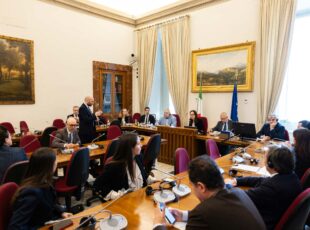Newsletter August 2012
Khodorkovsky: The Personal Enemy of Putin
 In an exclusive interview published in France’s Philosophie magazine and Germany’s Welt am Sonntag newspaper, Mikhail Khodorkovsky wrote about the “Russian spring”, perspectives for Europe, and about the conditions of his detention.
In an exclusive interview published in France’s Philosophie magazine and Germany’s Welt am Sonntag newspaper, Mikhail Khodorkovsky wrote about the “Russian spring”, perspectives for Europe, and about the conditions of his detention.Russia’s Supreme Court Orders Start of Review Proceedings
According to an announcement by a spokesperson for the Russian Supreme Court, Chair Vyacheslav Lebedev overturned another Supreme Court judge’s May 2012 rejection of an appeal filed by Khodorkovsky and his former business partner, Platon Lebedev. Khodorkovsky and Lebedev were appealing against the conviction and 13-year prison sentence handed down at the end of their second trial in December 2010.The Supreme Court has now ordered the start of review proceedings, despite Khodorkovsky’s defence team raising concerns about the Supreme Court sending the appeal back to the Moscow City Court, where it was originally heard, instead of reviewing the case itself. Khodorkovsky’s lawyers greeted the news cautiously, noting that while the review could be a first step towards justice, experience has shown that it could also be a judicial manipulation by the authorities for as yet unknown ulterior purposes.
There is also movement with Platon Lebedev’s case: the Arkhangelsk Regional District Court will hear Lebedev’s application for a reduction in his sentence on August 7th. As Lebedev and Khodorkovsky have been co-defendants in the same proceedings since their 2003 arrests, the treatment of Lebedev in these proceedings may foreshadow the treatment of Khodorkovsky.
Human Rights in Russia
Russia’s human rights situation remained in the headlines in July, as President Vladimir Putin signed into law strict new NGO control measures. A new law requires NGOs to register as “foreign agents” and to comply with invasive reporting and oversight rules. The measures create new grounds for control over NGOs and may presage a harsh clampdown on Russia’s still-nascent civil society. Lev Ponomarev, the head of the Russian NGO For Human Rights, announced that his organisation would refuse to comply with the new law, declaring a campaign of civil disobedience. “We will never be [foreign] agents and will not obey this law. We are agents of Russian citizens. We will continue to receive foreign grants and will speak about this openly.”Against this backdrop, the Russian Presidential Council for Civil Society and Human Rights faltered once more as 84-year-old Lyudmila Alexeyeva, one of Russia’s most famously dedicated human rights activists, resigned from her position on the Council. According to an interview with Reuters, when she first met Putin in 2002, she was impressed by his willingness to listen to people in the human rights community, but she now feels that he is no longer listening. Hers is the most recent in a string of resignations from the Council by prominent figures protesting Putin’s return to the Kremlin for a third term.
Meanwhile, the pre-trial detention of the all-female punk rock band, Pussy Riot, was also in the headlines as their hearing opened in the Khamovnichesky District Court where Khodorkovsky’s second trial took place.
Around the World
Just before Russia finally joins the World Trade Organization in August, US legislators moved to upgrade Russia to Permanent Normal Trade Relations (PNTR) status, repealing the 1973 Jackson-Vanik Amendment, a relic of the Cold War that prevented PNTR due to human rights concerns. However, the opening of US-Russia trade has been delayed by persistent concerns about Russia’s human rights failings, and US legislators have demanded that liberalized trade with Russia be linked to a bill – the Magnitsky Act, named after Sergei Magnitsky, a Russian anti-corruption lawyer who was tortured and died in police custody in 2009 – that would punish Russian officials involved in human rights violations. Russian officials involved in other tragic cases, such as the death of Vasily Alexanyan, former Executive Vice President of Yukos who was arrested in 2006 and held in inhumane pre-trial detention conditions and deprived of medical treatment, before his death in October 2011, could also see justice served as a result of the bill’s passage.Meanwhile, the Foreign Affairs Committee of the European Parliament adopted the first draft of a report by Kristiina Ojuland on EU sanctions against Russian officials involved in the Magnitsky case as well as other serious human rights violations on the basis of well documented, converging and independent sources. The report seeks to establish visa restrictions for Russian officials involved in Magnitsky’s death, and also “encourages the Council to take a coherent and proactive stance on other serious human rights violations in Russia, on the basis of well documented, converging and independent sources, and to introduce similar restrictive measures against offenders.”
In the UK, the Conservative Party Human Rights Commission released their latest report, “Professionals in the Firing Line: A report on violations of human rights affecting doctors, lawyers, teachers, business people and other professionals around the world.” The report welcomes the prospect that people responsible for human rights violations will be refused visas in the future.



